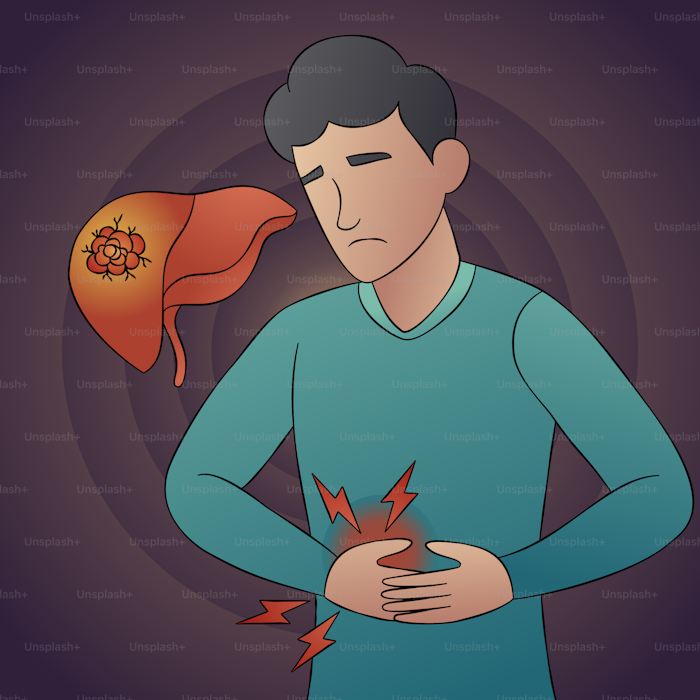Table of Contents
Have you ever wondered about cockroach food poisoning symptoms? While it’s not a topic most of us want to think about, understanding cockroach food poisoning symptoms can be crucial for your health and well-being.
Picture this: You’re enjoying a late-night snack in your dimly lit kitchen when suddenly, you spot a cockroach scurrying across the counter. Your appetite vanishes instantly, replaced by a queasy feeling in your stomach. But what if you hadn’t noticed that uninvited guest? What if it had already taken a tour of your pantry or sampled your meal?
Cockroaches aren’t just unsightly pests; they can pose serious health risks. These resilient creatures have been around for millions of years, surviving in some of the most unsanitary conditions imaginable. As they crawl through garbage, sewers, and other contaminated areas, they pick up a variety of harmful bacteria, parasites, and pathogens. When they invade our homes and food supplies, they bring these unwelcome hitchhikers along for the ride.In this article, we’ll delve into the world of cockroach-related food contamination. We’ll explore the symptoms you might experience if you accidentally consume food that’s been tainted by these persistent pests. From immediate reactions to long-term health concerns, we’ll cover everything you need to know to protect yourself and your loved ones.

Introduction and Immediate Symptoms of Cockroach Food Poisoning
Imagine sitting down to enjoy a meal, only to discover that uninvited guests have already sampled your food. No, we’re not talking about sneaky roommates or mischievous pets – we’re referring to cockroaches. While the thought alone might make your skin crawl, it’s important to understand the potential health risks associated with cockroach-contaminated food.
How Cockroaches Contaminate Food
Cockroaches are not known for their cleanliness. These nocturnal critters often inhabit less-than-sanitary environments, picking up various bacteria, parasites, and pathogens along the way. When they scurry across your kitchen counters or sneak into your pantry, they can transfer these harmful microorganisms to your food. Common ways cockroaches contaminate food include:
– Walking across food with their dirty legs
– Defecating on or near food items
– Shedding body parts or skin near food
– Regurgitating partially digested food onto surfaces

Immediate Symptoms to Watch For Cockroach Food Poisoning
If you’ve accidentally consumed food contaminated by cockroaches, your body may react quickly. Here are the most common immediate symptoms to be aware of:
1. Nausea: That queasy, unsettled feeling in your stomach is often the first sign that something’s not right. It can range from mild discomfort to an overwhelming urge to vomit.
2. Vomiting: Your body’s natural defense mechanism may kick in, attempting to expel the contaminated food. While unpleasant, this can actually be helpful in ridding your system of harmful substances.
3. Abdominal Pain and Cramps: You might experience anything from mild discomfort to sharp, intense pains in your abdominal area. These cramps occur as your digestive system reacts to the contaminants.
4. Diarrhea: Loose, watery stools are another common symptom. This is your body’s way of quickly eliminating the contaminated food from your system.
5. Risk of Dehydration: With vomiting and diarrhea, there’s a real risk of becoming dehydrated. Watch for signs like:
– Excessive thirst
– Dry mouth
– Reduced urination
– Dark-colored urine
– Fatigue or dizziness

What to Do If You Experience These Symptoms
If you suspect you’ve consumed cockroach-contaminated food and are experiencing these symptoms:
1. Stay hydrated: Drink plenty of water or electrolyte solutions to replace lost fluids.
2. Rest: Give your body time to fight off the contaminants.
3. Avoid solid foods: Stick to clear liquids until your symptoms subside.
4. Monitor your symptoms: If they persist or worsen, seek medical attention.
Remember, while these symptoms can be alarming, they’re usually your body’s way of protecting itself. However, if symptoms are severe, persistent, or accompanied by high fever, bloody stools, or signs of severe dehydration, don’t hesitate to seek medical help. By being aware of these immediate symptoms, you can respond quickly and appropriately if you ever find yourself in this unappetizing situation. Stay vigilant, practice good food hygiene, and remember – when it comes to food safety, it’s always better to be safe than sorry!
Delayed Symptoms and Complications of Cockroach Food Poisoning
While immediate reactions to contaminated food can be alarming, cockroach food poisoning symptoms don’t always appear right away. In fact, some of the most serious cockroach food poisoning symptoms may take time to develop. Let’s explore the delayed symptoms and potential complications you should be aware of.
Delayed and Systemic Cockroach Food Poisoning Symptoms
Cockroach food poisoning symptoms can sometimes take hours or even days to manifest. These delayed cockroach food poisoning symptoms might include:
1. Fever and Chills: As your body fights off the contaminants, you might experience a rise in temperature. This is one of the common cockroach food poisoning symptoms that indicates your immune system is hard at work.
2. Body Aches: Generalized pain or discomfort throughout your body can be another of the cockroach food poisoning symptoms to watch for. It’s your body’s way of signaling that something’s not right.

3. Allergic Reactions: Cockroach proteins can trigger allergic responses in some individuals. These cockroach food poisoning symptoms may include:
– Skin reactions like hives or itching
– Respiratory issues such as wheezing or difficulty breathing
– In severe cases, anaphylaxis (a potentially life-threatening allergic reaction)
4. Neurological Symptoms: In rare cases, cockroach food poisoning symptoms might extend to the nervous system, causing:
– Dizziness
– Confusion
– Muscle weakness or tremors
Remember, the severity and duration of these cockroach food poisoning symptoms can vary from person to person. Always monitor your condition closely and seek medical attention if symptoms persist or worsen
Complications and Long-term Concerns
While most cases of cockroach-related food contamination resolve on their own, some can lead to more serious issues. Potential complications stemming from cockroach food poisoning symptoms include:
1. Gastrointestinal Issues: Persistent digestive problems may develop as a result of cockroach food poisoning. These ongoing cockroach food poisoning symptoms might include:
– Chronic diarrhea
– Abdominal pain
– Difficulty digesting certain foods
2. Bacterial Infections: Cockroaches can carry various harmful bacteria. If these pathogens enter your system, you might experience severe cockroach food poisoning symptoms or develop secondary infections.
3. Chronic Health Problems: In some cases, exposure to cockroach-contaminated food can lead to long-term health issues. These lasting cockroach food poisoning symptoms may include: – Development of food allergies or sensitivities
– Chronic fatigue
– Weakened immune system
4. Psychological Impact: While not a physical symptom, the experience of cockroach food poisoning can have lasting psychological effects. Some people may develop: – Anxiety around food preparation or eating
– Obsessive cleaning behaviors
– Phobias related to insects or contamination
It’s crucial to understand that while these complications can occur, they are not inevitable. Many people who experience cockroach food poisoning symptoms recover fully without long-term effects. However, being aware of these potential issues can help you stay vigilant and seek appropriate care if needed. Remember, if you’re concerned about any persistent or severe cockroach food poisoning symptoms, don’t hesitate to consult with a healthcare professional.
They can provide proper diagnosis and treatment, ensuring you recover fully from this unpleasant experience. By understanding both the immediate and delayed cockroach food poisoning symptoms, as well as potential complications, you’re better equipped to protect your health and respond appropriately if you ever face this situation. Stay informed, stay vigilant, and most importantly, stay healthy!

Diagnosing, Treating, and Preventing Cockroach Food Poisoning Symptoms
Diagnosis and Treatment: When to Seek Help
Recognizing cockroach food poisoning symptoms is crucial, but knowing when to seek medical help is equally important. If you’re experiencing severe or persistent cockroach food poisoning symptoms, it’s time to consult a healthcare professional.
When diagnosing cockroach food poisoning symptoms, doctors typically:
1. Assess your symptoms and medical history
2. Perform a physical examination
3. Order laboratory tests, if necessary
Remember, cockroach food poisoning symptoms can sometimes mimic other conditions, so a proper diagnosis is essential.
Treatment for cockroach food poisoning symptoms often focuses on managing the symptoms and preventing complications.
This may include:
– Rehydration therapy to replace lost fluids and electrolytes
– Anti-nausea medications to alleviate vomiting
– In severe cases, antibiotics may be prescribed if a bacterial infection is confirmed
If you’re experiencing mild cockroach food poisoning symptoms, home care might be sufficient. However, seek immediate medical attention if you notice:
– Severe abdominal pain
– High fever
– Bloody stools
– Signs of severe dehydration
Prevention, Safety, and Psychological Impact
Preventing cockroach food poisoning symptoms starts with good hygiene and pest control. Here are some tips to keep your kitchen cockroach-free:
1. Store food in airtight containers
2. Clean up spills and crumbs immediately
3. Regularly dispose of garbage
4. Seal entry points in your home
5. Consider professional pest control services
While these steps can significantly reduce your risk of experiencing cockroach food poisoning symptoms, the psychological impact of a potential encounter shouldn’t be overlooked. Many people develop anxiety or phobias related to cockroaches and food safety.

If you’re struggling with these feelings:
– Practice mindfulness techniques
– Seek support from friends and family
– Consider talking to a mental health professional if your anxiety persists
Remember, while cockroach food poisoning symptoms can be distressing, they’re often preventable with proper precautions. Stay vigilant, but don’t let fear of cockroach food poisoning symptoms control your life.
Key takeaways for managing and preventing cockroach food poisoning symptoms
1. Know when to seek medical help
2. Focus on symptom management and hydration
3. Implement strong pest control and food safety measures
4. Address any lingering psychological impacts
By staying informed and proactive, you can significantly reduce your risk of experiencing cockroach food poisoning symptoms and enjoy your meals with peace of mind.

